Bogota Market – A Great Introduction to Colombia
This is the second in a series of posts on the South American country of Colombia. In the first post I mused on whether or not Alison and I would find Colombia to be the stereotypical Latin American violence ridden banana republic or a country finally at peace with itself. Well the answer became readily apparent in a very short time after our arrival, but first a few words about the practicalities of arriving in Colombia after which we will visit the amazing Bogota market.
Colombia – First Impressions
We arrived in Bogota after a six hour direct flight from Toronto on Air Canada. The flight was delayed for two hours due to poor weather. It was snowing and seemed to be getting worse by the minute. We were just happy to feel the Boeing 767 leave the ground and break through the cloud cover, leaving the hellish Canadian winter behind. Shockingly, we were served a free meal on board, something that is a real rarity in these days of airline austerity. The flight itself was uneventful and arriving in the dark I could see little of Bogota or its surroundings.
Strangely enough there is a dedicated line just for Canadians at Bogota’s El Dorado airport. The reason for this is that, while Canadians don’t need a visa to enter Colombia, they do need to pay a $120.00 entry fee which is payable by credit card or Colombian pesos, but not U.S. dollars. By the time our fee was processed and our passports stamped, our luggage was on the carousel and we were ready to leave. Colombia is the first place I ever visited where they screen your luggage before letting you leave the airport – not sure what they’d be looking for, guns I suppose, but it’s become a common practice now in Latin America and elsewhere.
A driver from Adventures Abroad was waiting for us and about eight other passengers who were on the same trip as us and after waiting in vain for one passenger on the list who didn’t show up, we finally left for the Hotel de la Opera at about 1:30 AM.
I have always believed that you can learn a lot about a country and its people right off the bat by observing their driving customs. Here’s my checklist of what to look for and how the Colombians fared on that list.
- Are the roads in good condition and the signage adequate?
- Are the private cars, taxis and buses reasonably new and undented or are they rusted out shit boxes?
- Do the cars have mufflers and catalytic converters or are they noisome smoke belchers?
- Are the traffic lights and stop signs obeyed or are they merely suggestions?
- Do the drivers try to live up to the maxim “Drive like Hell. You’ll get there.” or are they sane?
- Do pedestrians need to fear for their lives in crossing the street, even if they are in a crosswalk?
I’m glad to report that, Bogota at least, gets a passing grade on all six accounts. Even though there was little traffic at this hour of the morning, our driver obeyed the speed limit, stopped at red lights and at least made a rolling taxi stop at the stop signs. As we neared the older central district of Bogota the streets got narrower and the presence of security guards and police officers increased. In order to get to our hotel a private guard had to remove traffic cones to let us pass.
Despite the fact it was now close to 3:00 AM, Andres Fernandez, our Adventures Abroad tour leader, was on hand to meet us and introduce himself. Andres is a native of San Jose, Costa Rica and is Adventures Abroad’s Latin America specialist. We will be with him for the next three weeks. He advised us that due to the late arrival of about half the tour participants the itinerary for Bogota had been reversed and tomorrow would not be a strenuous first day. That is one of the things I like about Adventures Abroad – they are not slaves to the itinerary. There are lots of reasons to change things up, including the weather, unexpected closures or openings, you name it. So we hit the sack just after three and were out like lights in a few minutes.
After four hours sleep we were up and ready to go.
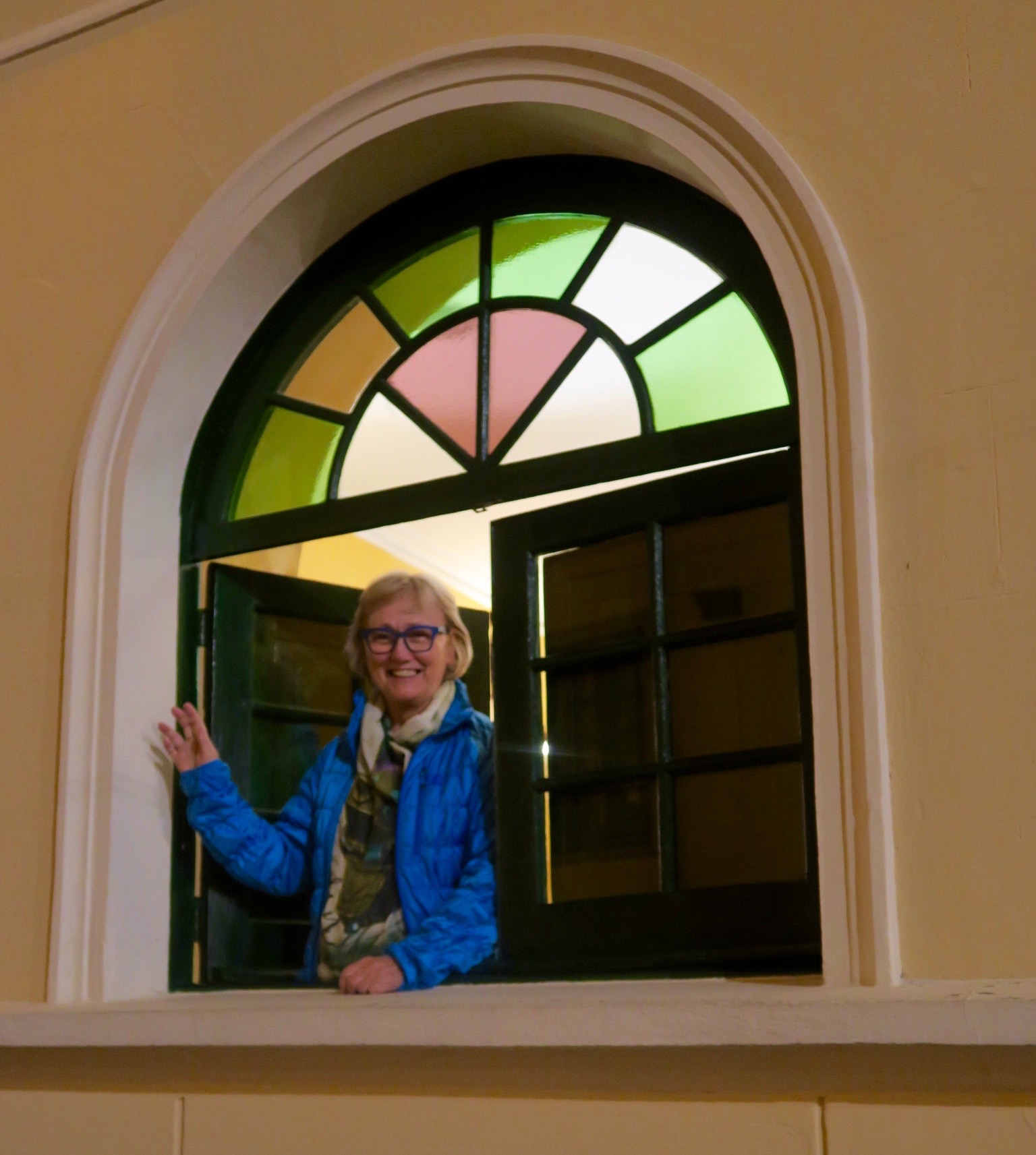
After a quick breakfast we met the rest of our tour group which is eighteen in total, which is the max for an Adventures Abroad tour. There are fourteen Canadians and four Americans who cover Canada from Victoria to Halifax (us) with others from Vancouver, Calgary Winnipeg and Toronto. Our American friends are from Las Vegas and Philadelphia. By profession there are two doctors, three nurses, a pharmacist, an engineer, a C.A., a teacher, a computer tech, an airplane salesman and two lawyers – should anyone get sick, arrested or audited we will be ready for it.
Andres introduces us to our local Bogota guide, Catalina Rincón, who in a previous life was an interior designer, but now prefers to help foreign visitors learn about her great city and environs.
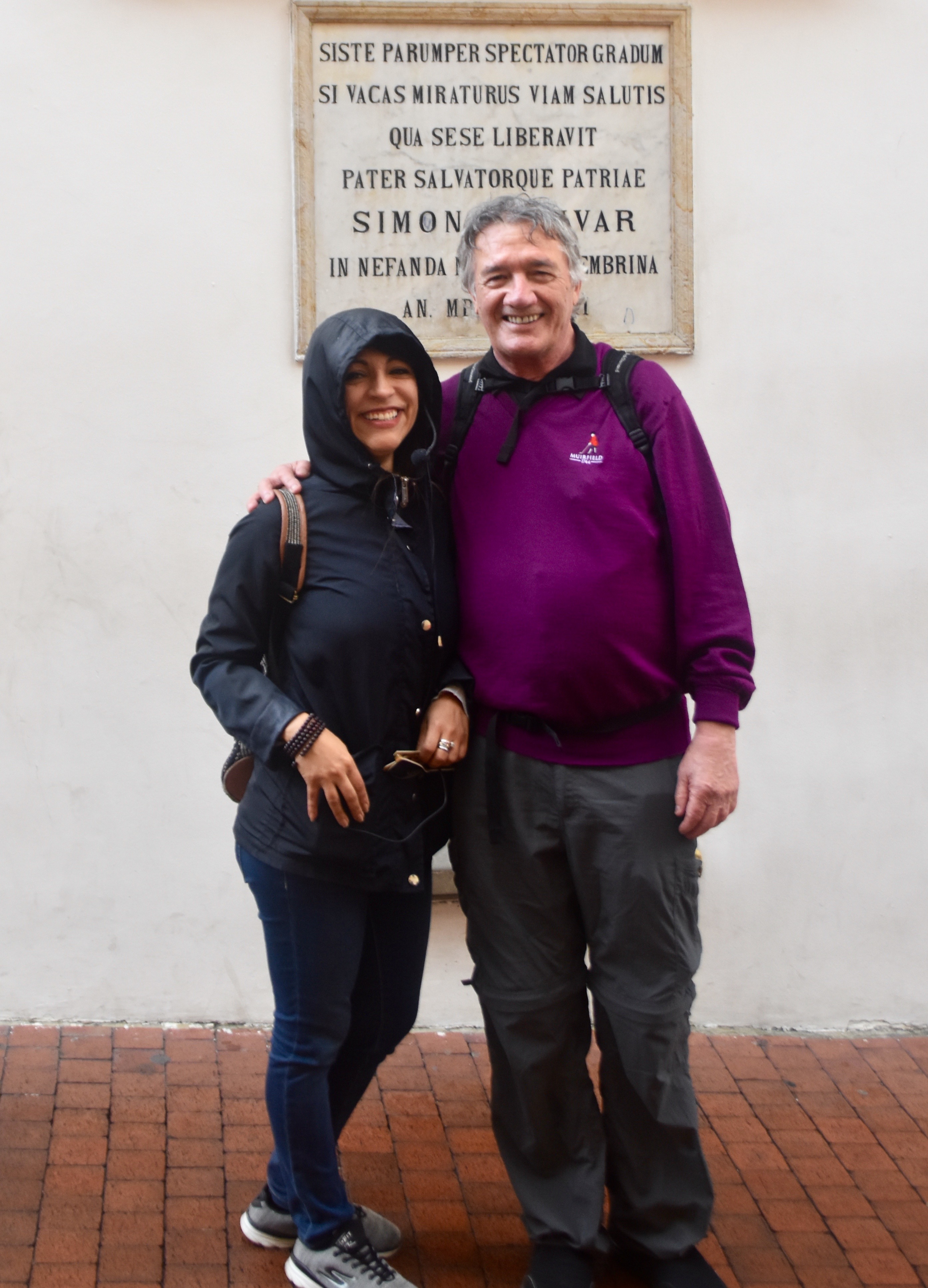
We will start by visiting the famous Bogota Market.
Bogota Market – Mercado de Paloquemao
Starting a trip off with a visit to a local market is usually a great idea. It immediately puts you face to face, if not cheek to jowl, with the local people. You quickly learn what they like to eat and about new fruits and vegetables you might not have encountered back home. But there can be a downside to starting out this way. If the vendors are aggressive and in your face, or if they are selling crap or if the atmosphere is hostile to strangers it can quickly create a negative impression that might not go away during and after the trip. So Catalina is taking a bit of a risk, but I’m confident that she knows what she’s doing starting off with a visit to Bogota Market.
The traffic in the morning is not as bad as I thought it would be. The reason is that Bogota, a city of ten million, has instituted an even/odd license plate system for being able to drive your car during rush hour which means only about half the cars that could be on the road are actually allowed to be. Along the major highways there are dedicated bus lanes that stop at stations in between the roads going in either direction, much like a light rail systems in other cities.
It doesn’t take long to get to Mercador de Paloquemao which is the largest market in Bogota and is especially famous for its flowers. Did you know that Colombia is the second largest producer of cut flowers in the world? I didn’t until I started research on this trip. We always have cut flowers on display at home during the months I can’t cut them from the garden. We buy then from the local Superstore and since I found out about Colombia’s prominence as a flower growing country I started checking where the came from. Sure enough, all the cut flowers we bought over the holiday season came from Colombia.
We arrive at the market about 10:00 AM and some of the vendors, who have been here since 4:00 AM, are starting to pack up, but still the place is unbelievable. This portion of the market is outdoors and just looking at thousands upon thousands of flowers can’t help but brighten anyone’s day. Have a look at these photos.
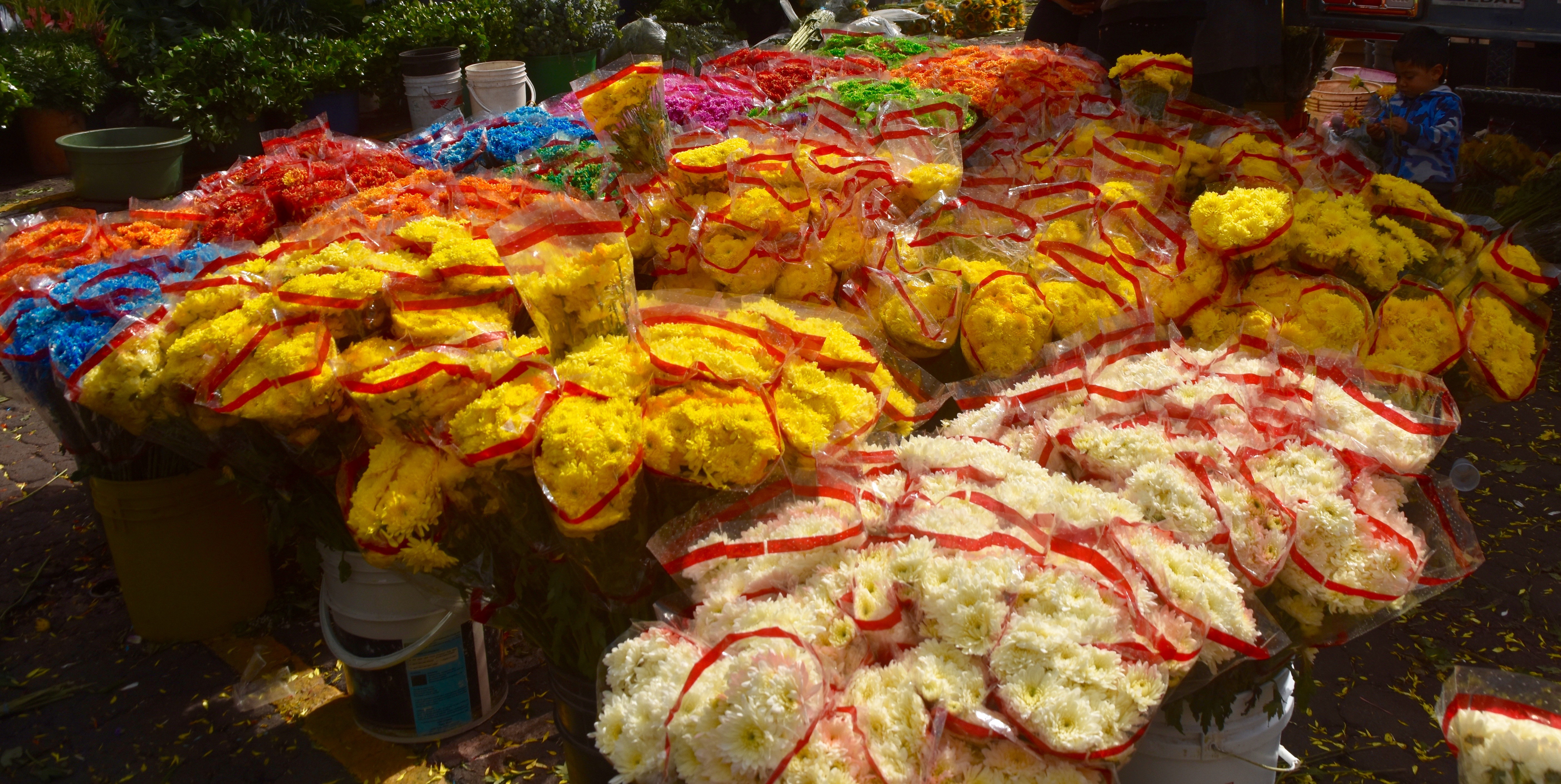
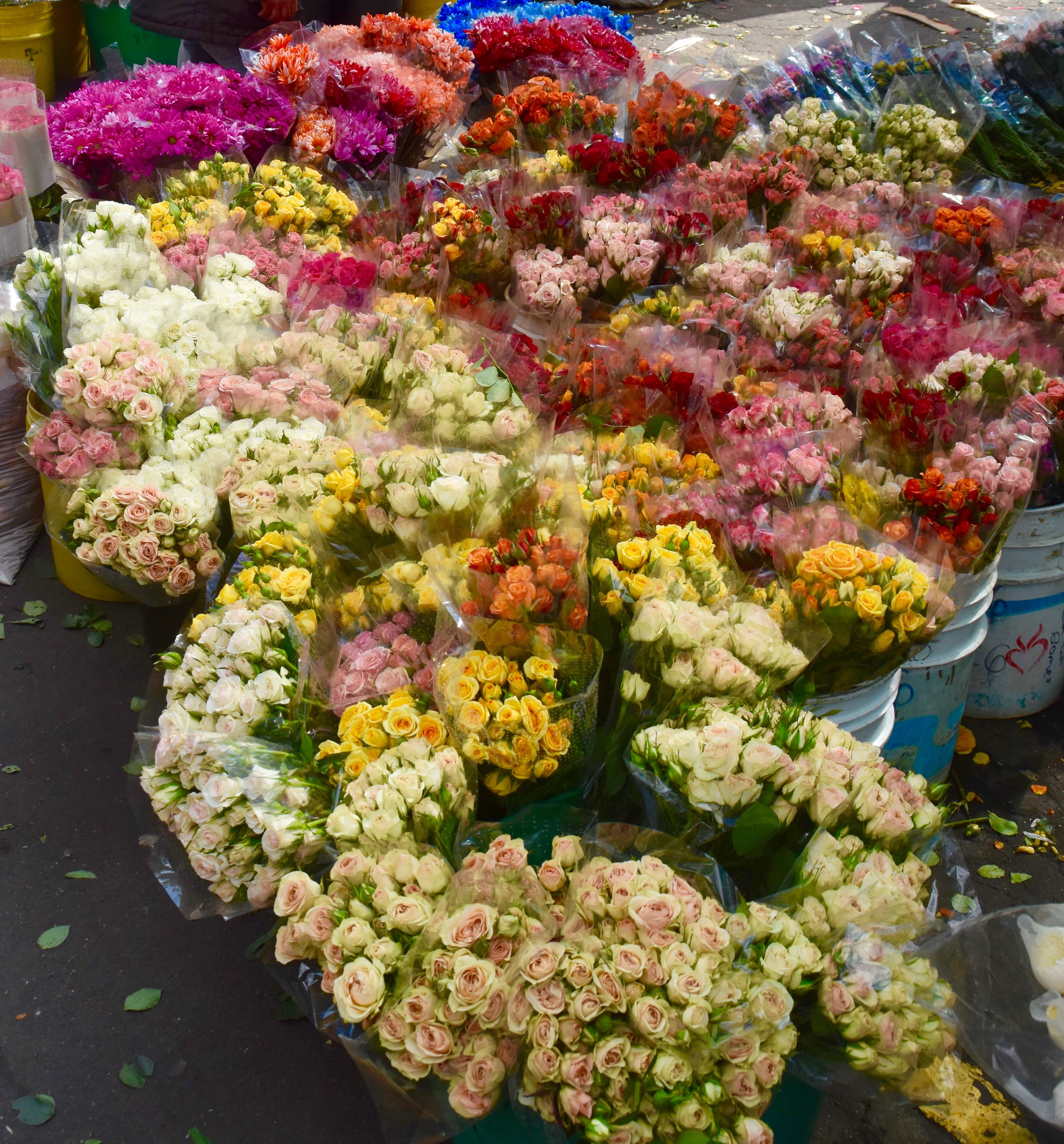
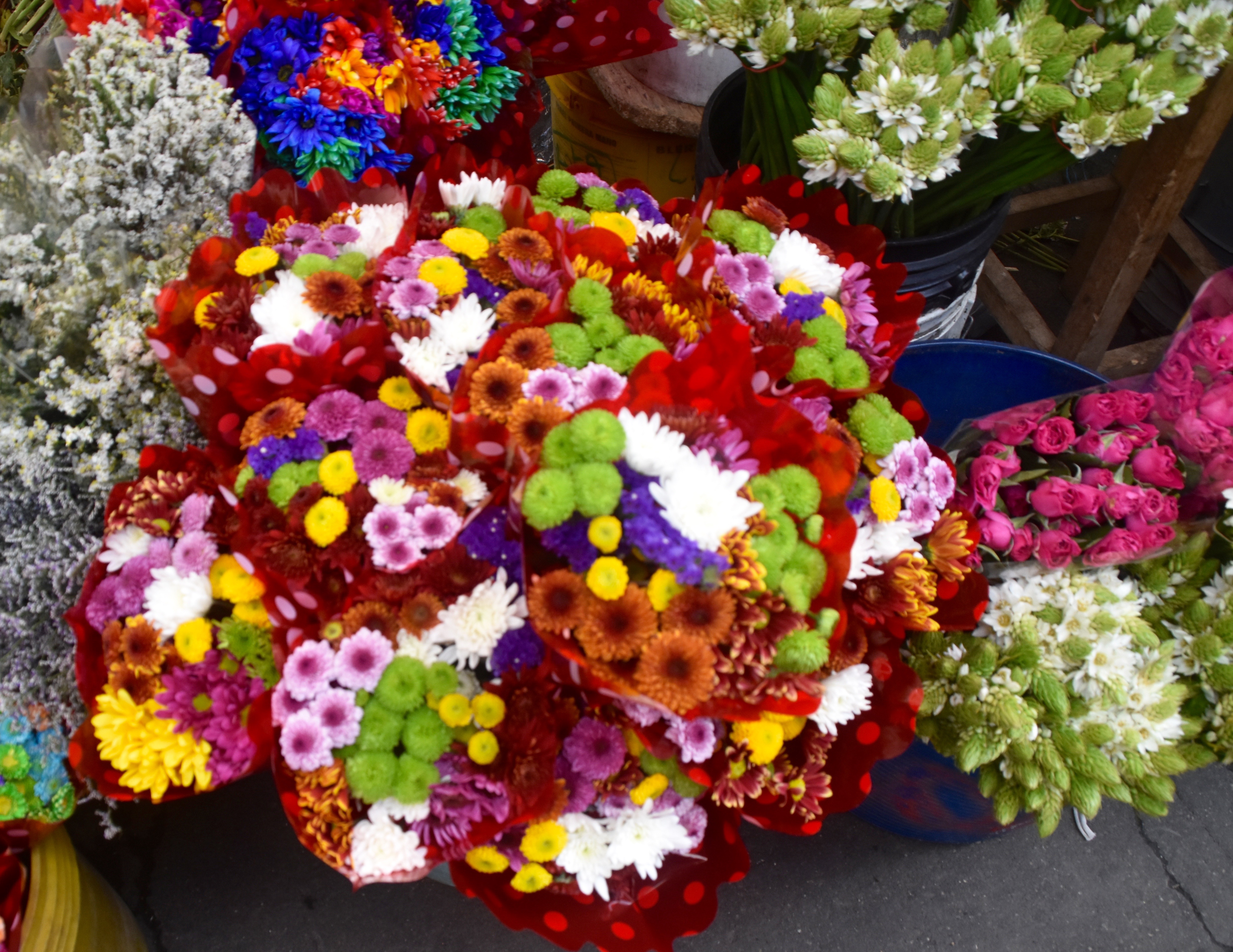
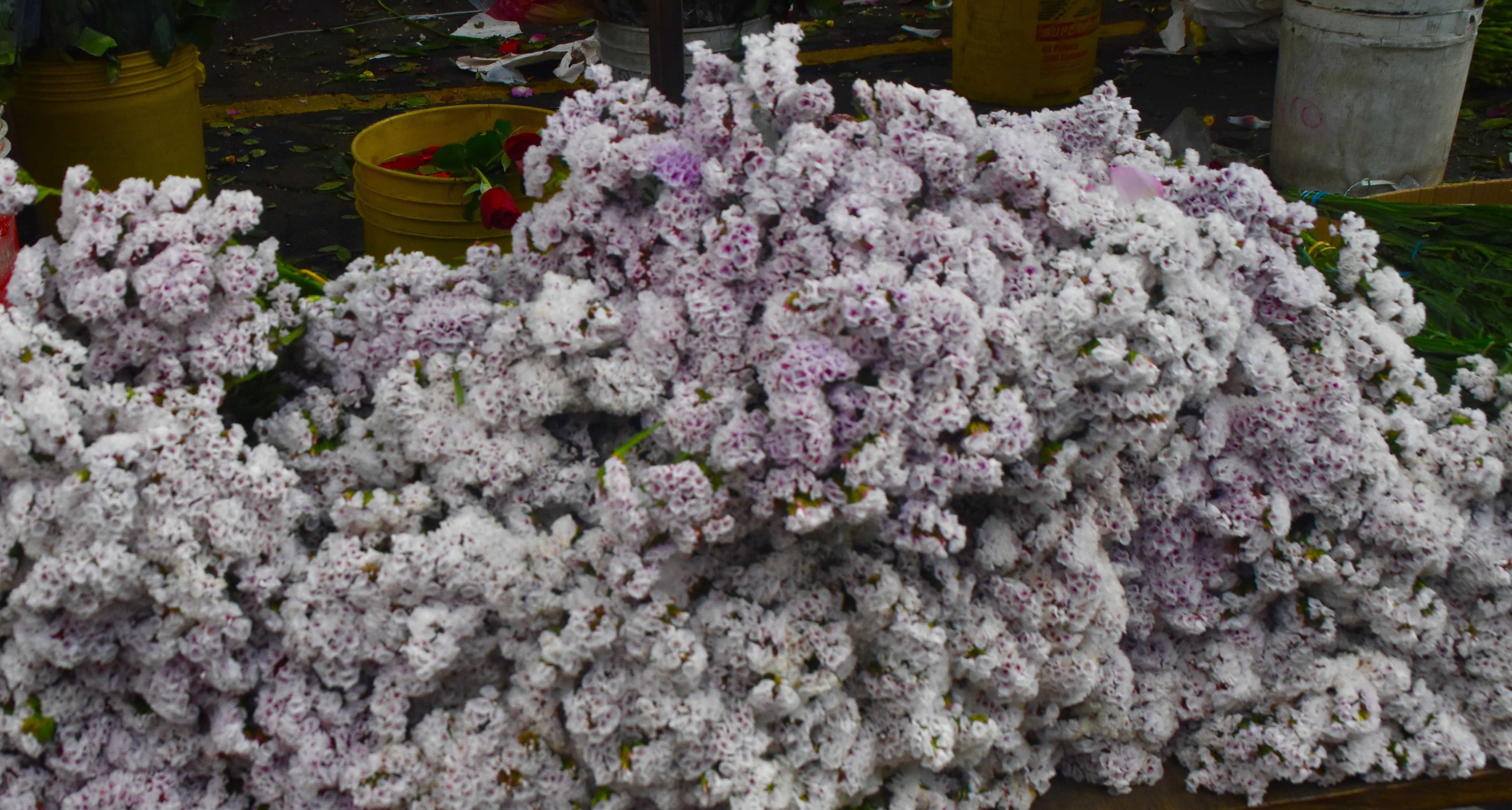
The second thing I noticed about the flower market, the first being the local colour (pun intended), was that the people were so smiling and happy. The transactions between vendor and buyer were done cordially, usually with smiles on both faces and often accompanied by conversations that indicated that the buyer was a regular customer. I had read on one website that the decades of random violence unleashed by Escobar and others had completely traumatized ordinary Colombians who were like cats that jump straight up in the air when surprised by a loud noise. From what I saw this morning and the days after this is complete b.s. Does this guy look traumatized?
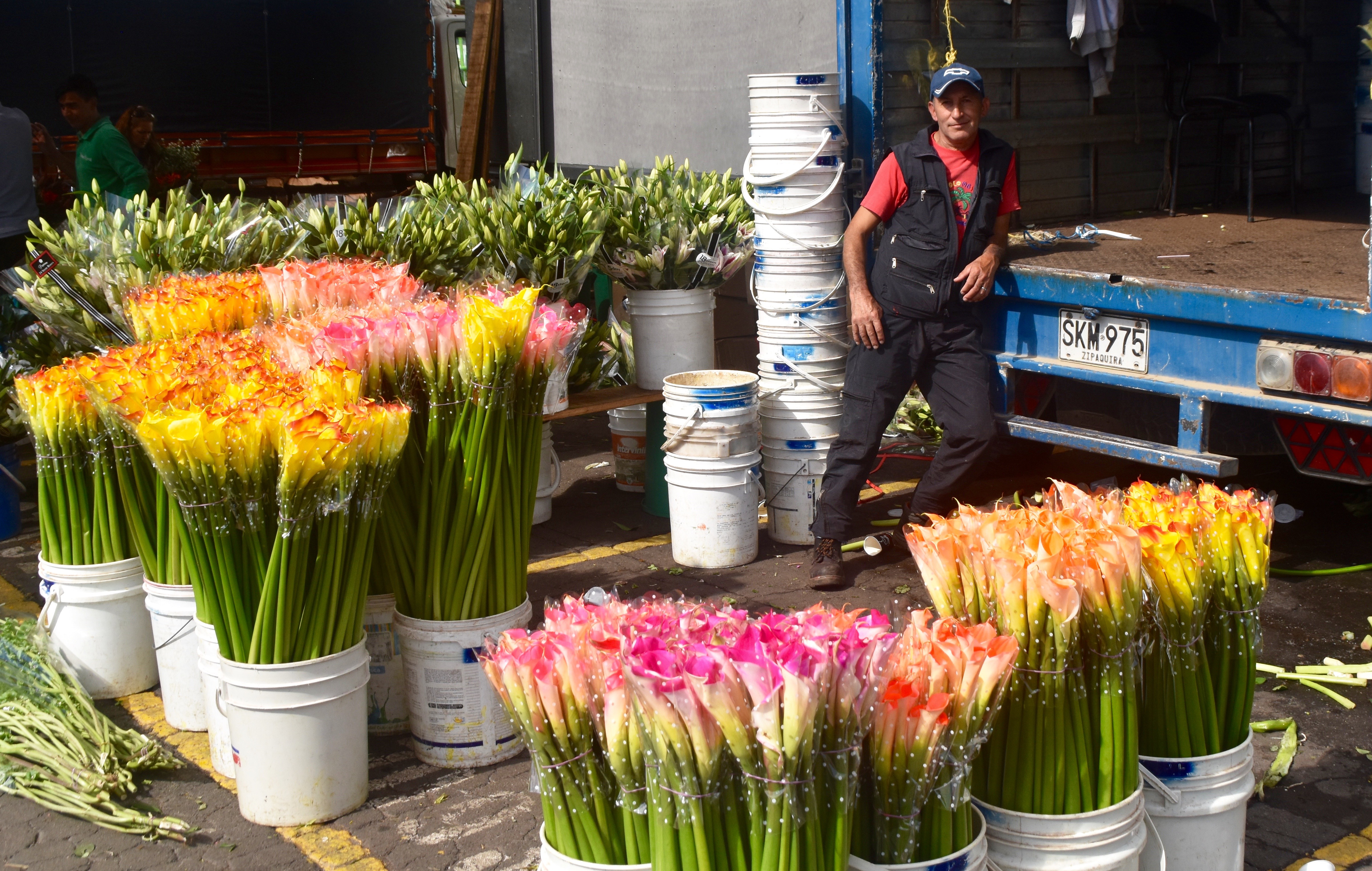
Or this guy?
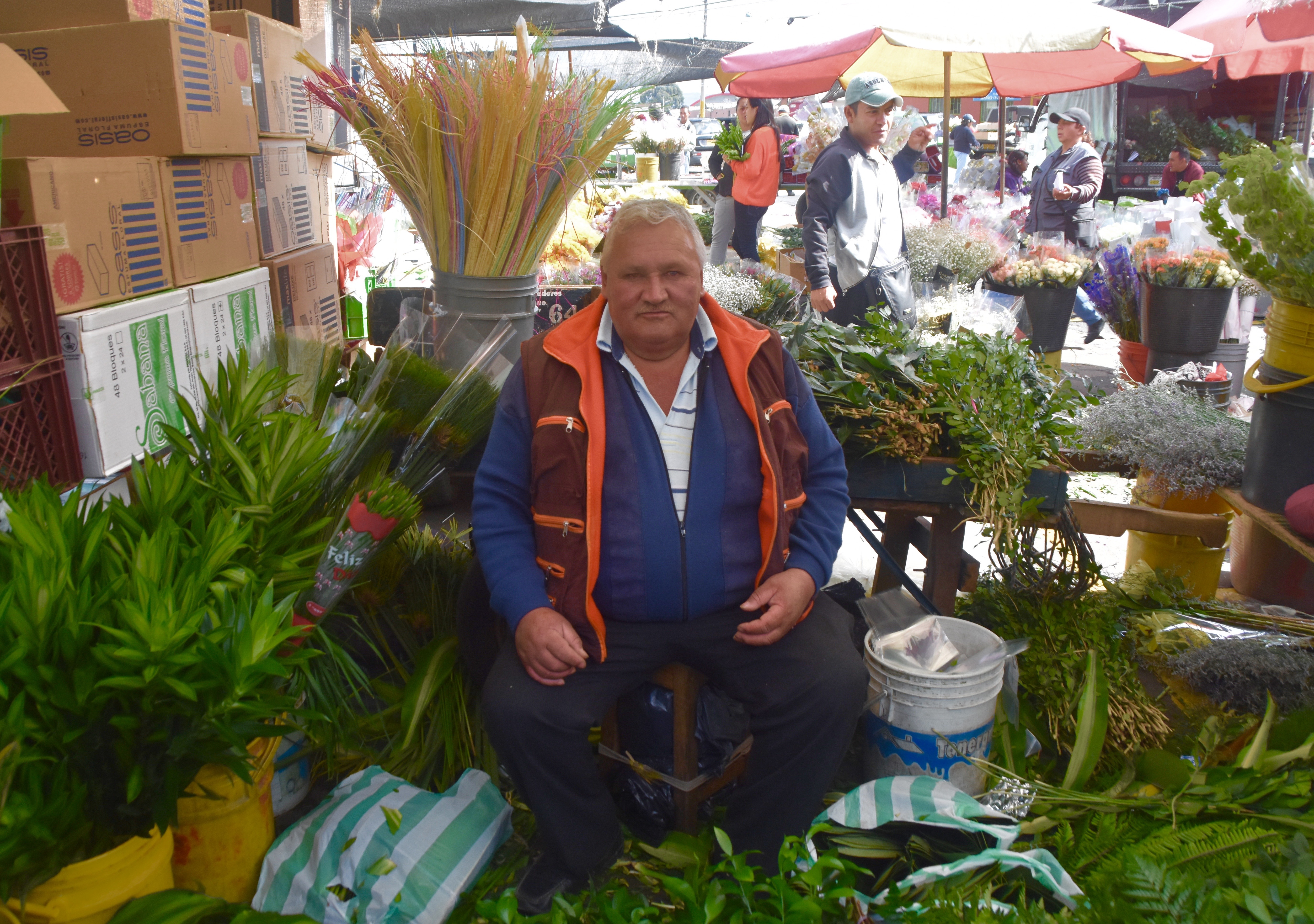
Funny story. When I came by this Falstaffian figure’s stall he was grinning and laughing with his compatriots, but when I asked if I could take his picture, he immediately assumed this serious pose, guessing I suppose, that he wanted to come across as a person of gravitas.
We were able to wander around freely without being harassed the way you would in a mid-Eastern souk or Bangkok market. It was obvious we were tourists and instead of trying to sell us something, we were greeted with many ‘Welcomes’ and a few ‘Thank you for coming’. One vendor offered a dozen roses to a couple of our ladies to hold while he stood between them for a picture, grinning like the Cheshire cat. All together the flower market was a great introduction to Bogota.
By the time we finished our tour of the flower market, many vendors were trying to sell the last of their wares to street vendors who would try to resell them to passing motorists. Unfortunately, many flowers, grown with so much love, don’t find a good home and ultimately left to wilt. This lot almost made me cry.
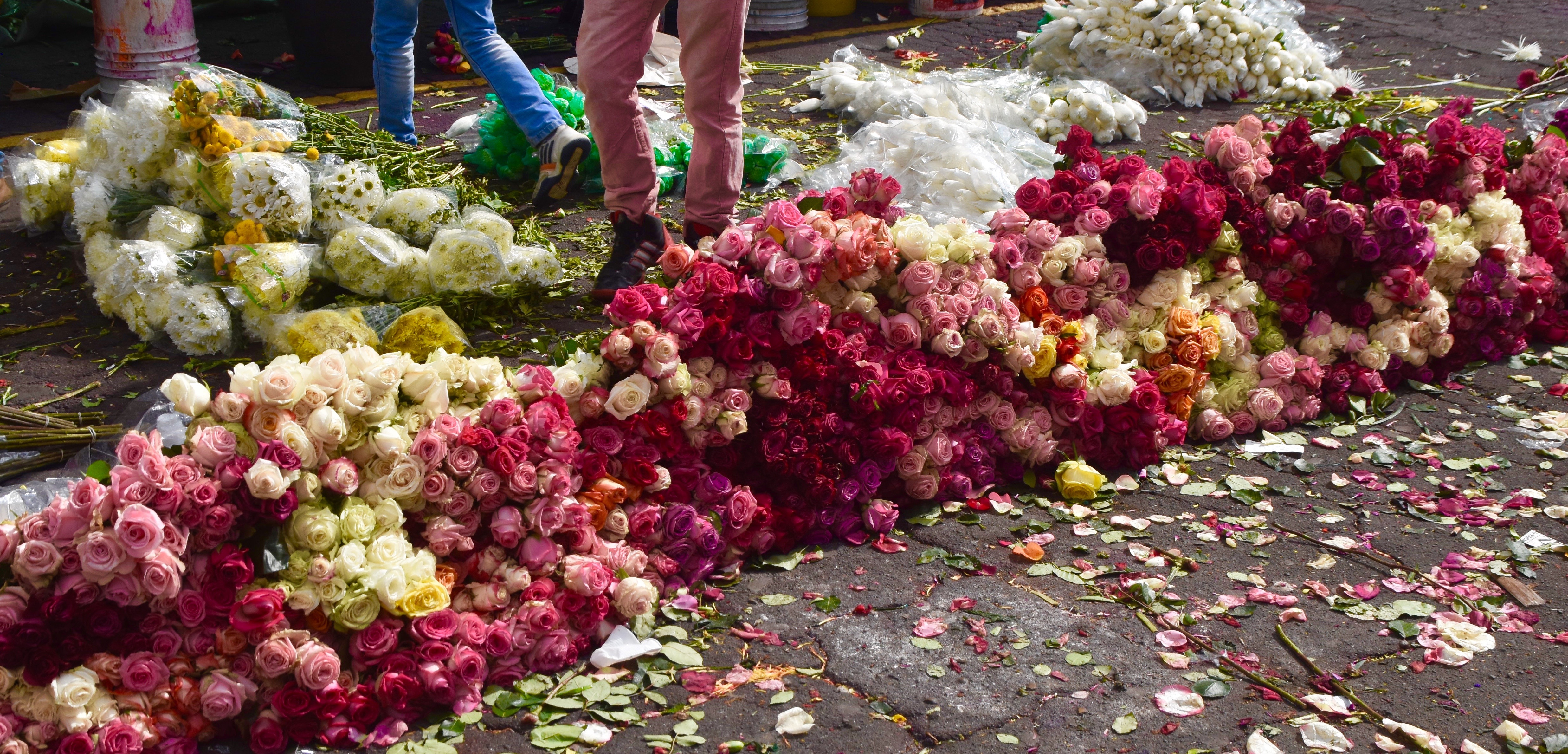
With reluctance we left the flower market and headed into the rabbit warren of the massive covered portion of the Bogota Market where literally, everything from soup to nuts is on sale.
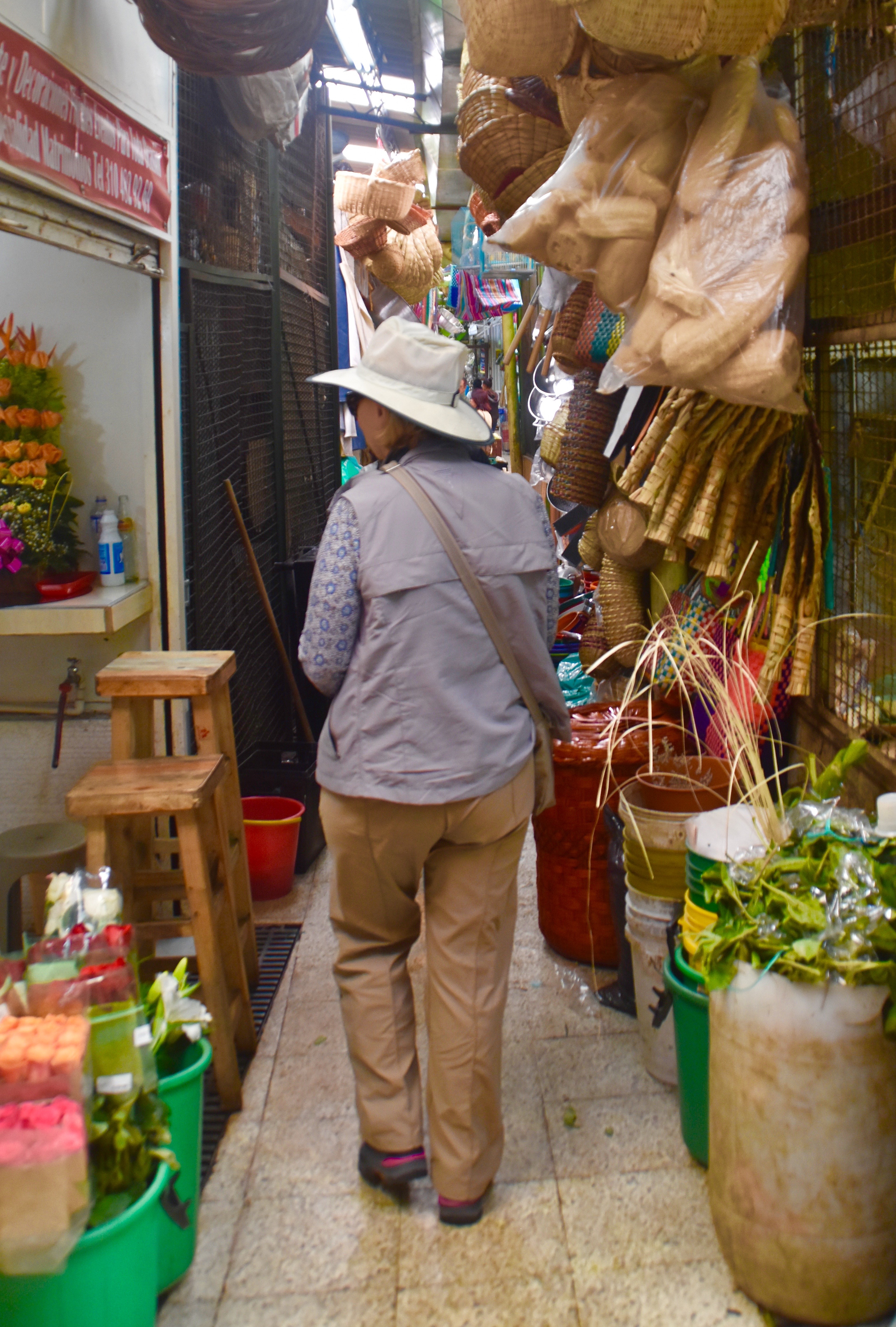
Catalina took us to the fruit produce section which was amazing for the sheer number of different fruits I’d never seen in my life. Better yet, she took us to this stall where we tried no less than eight new fruits which the lady whose head I’ve manage to hide behind a pineapple, would cut up and Catalina pass around.
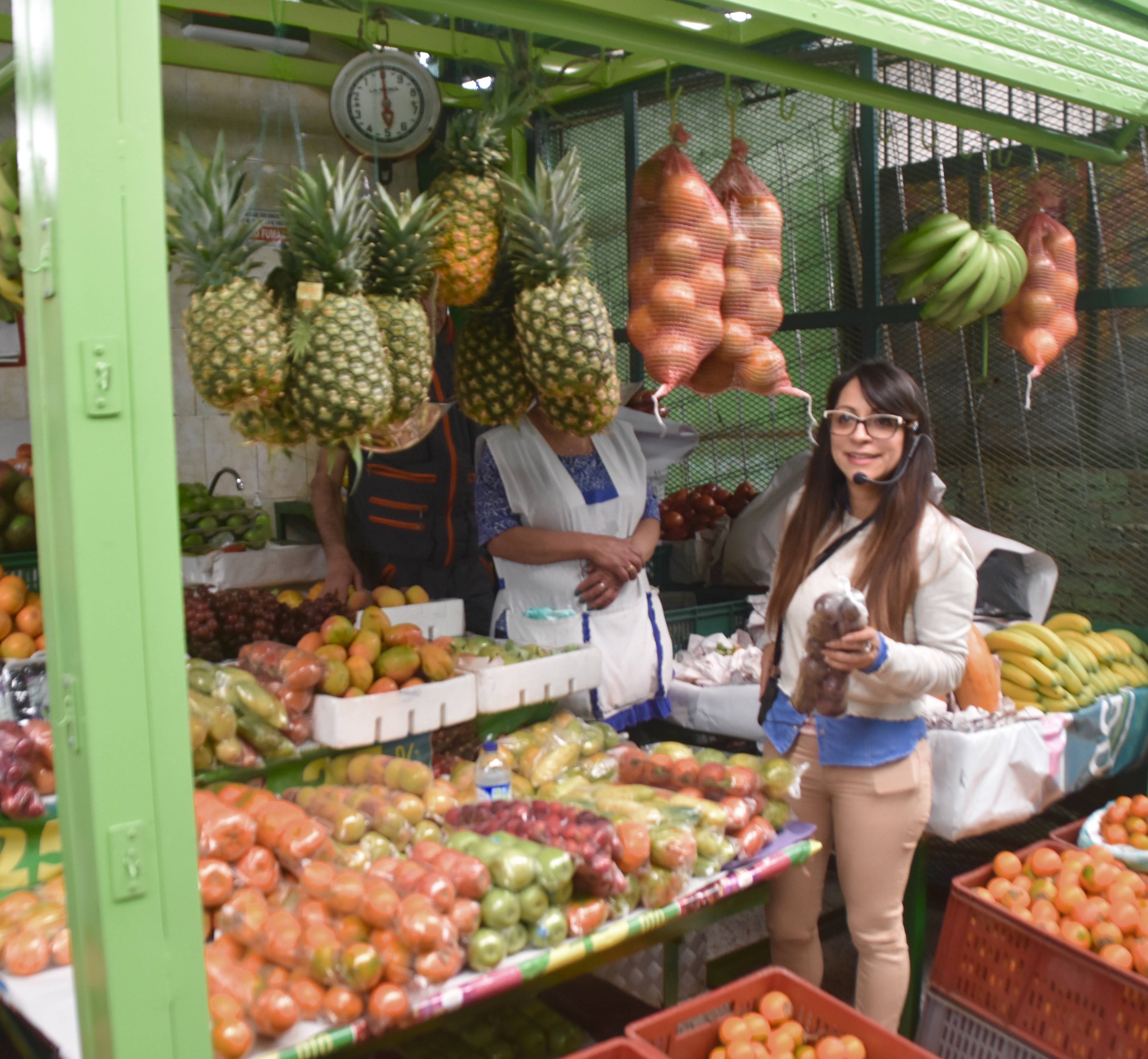
Now I know what you’re thinking – “One shouldn’t eat unpeeled fruit in strange lands.” However, we didn’t eat the peel just the interior and absolutely no one suffered any ill effects. The result was a taste explosion that covered the gamut from sweet to pleasantly sour to bitter and everything in between.
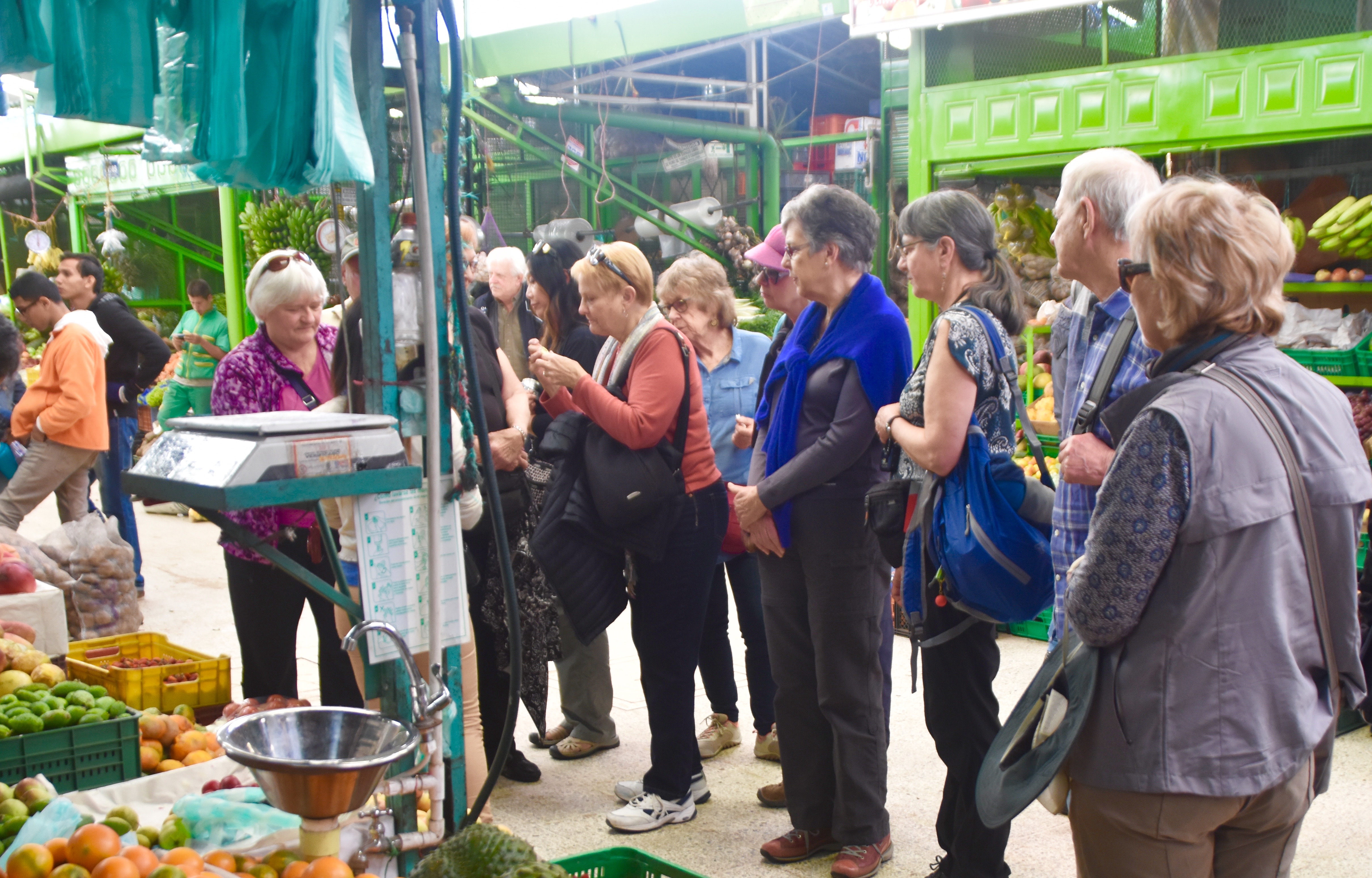
Just a few of the fruits were guanabana (ugly on the outside, wonderful on the inside), guavas that tasted better than any ever delivered to Canada, wonderfully sour lulo (you can just see some in the lower left of the picture above), maracuya – a variety of passionfruit that looked unappetizing but had a wonderful texture and lastly, sweet mango which I am sampling below.
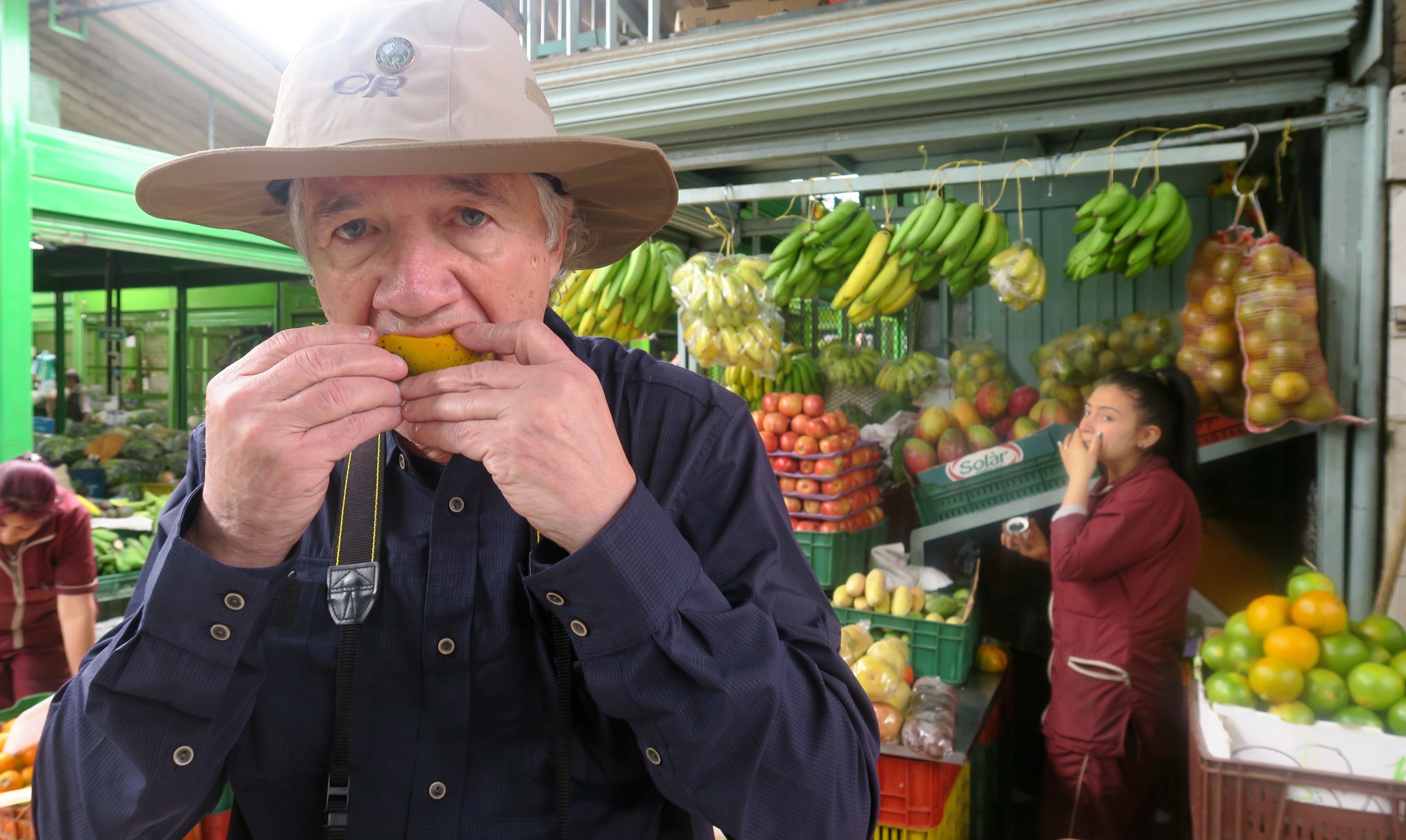
I like mangos, but I find they have a soapy aftertaste. Not these suckers, which are smaller and way sweeter than what passes for a mango in Canada.
One fruit that is currently close to the top of the A list of desirable and healthful fruits is the avocado. The Bogota Market had them by the bushel load, but unlike in Canada, there were many varieties to choose from including some behemoth specimens and some tiny ones.
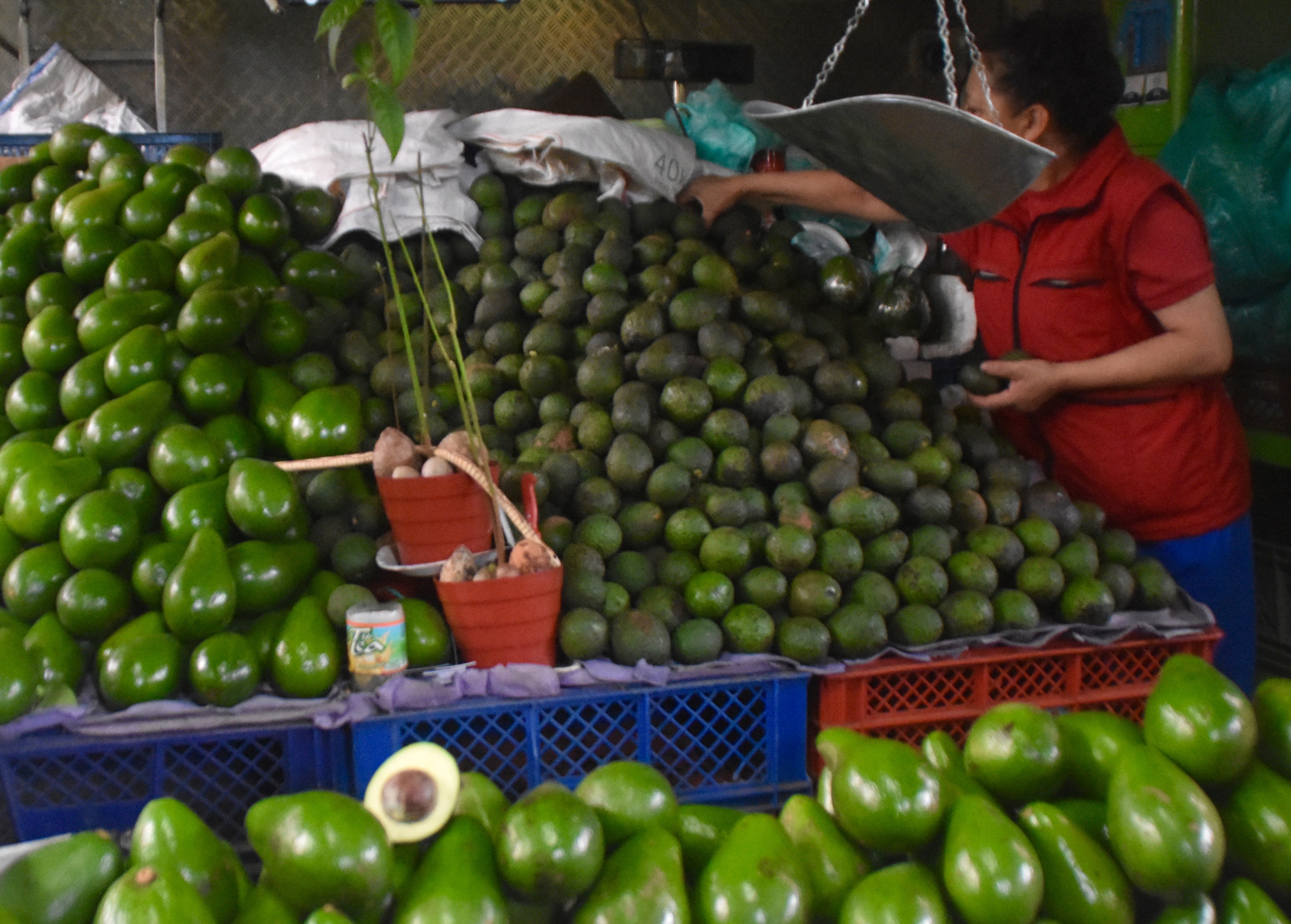
After gorging ourselves on fruit we headed to the vegetable section which was equally impressive.
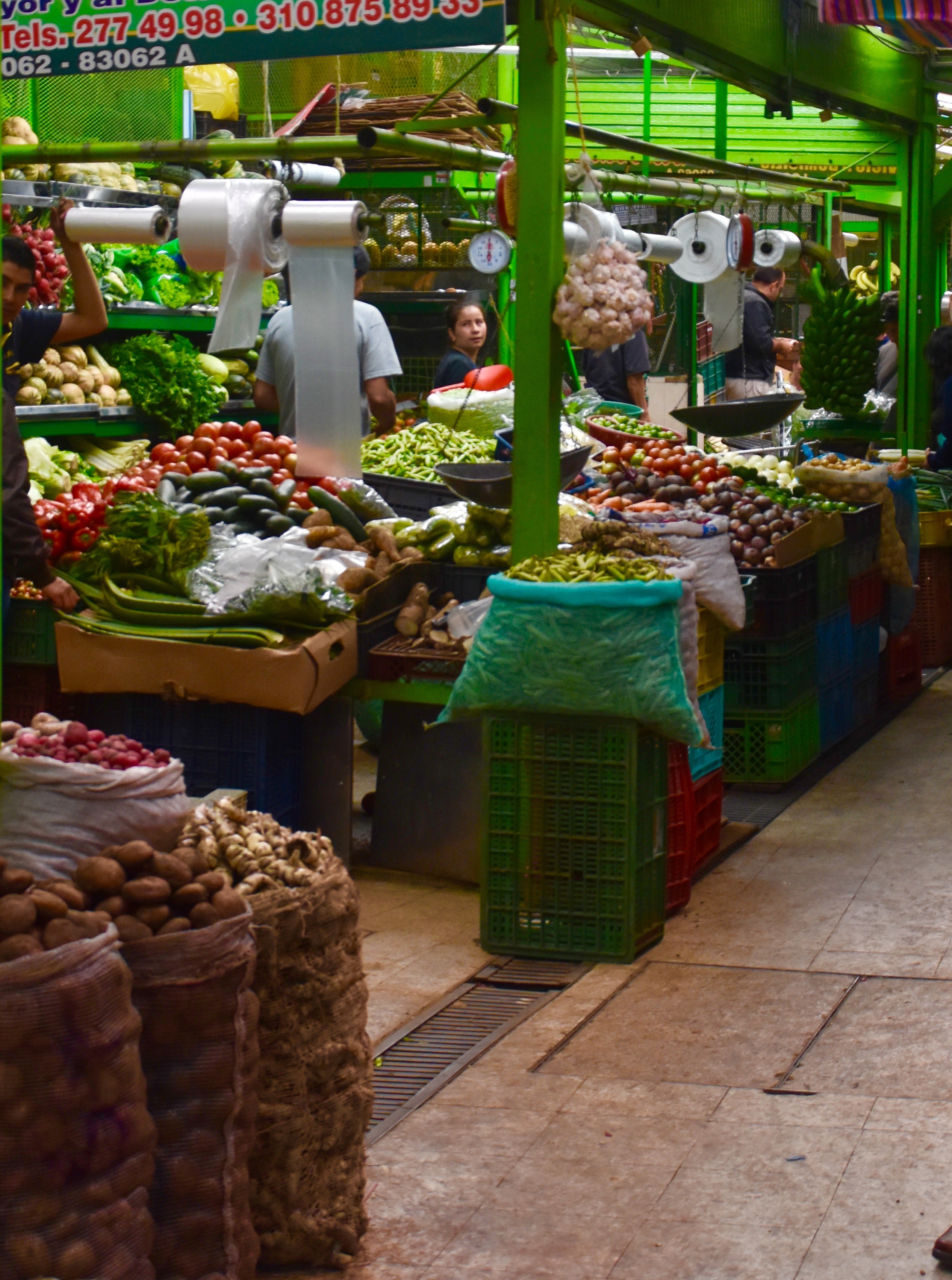
The Western Hemisphere and mostly South America is the original home of some of the most important staple crops in the world. Can you imagine a world without tomatoes, potatoes, peppers, corn or the squash family? Well those plants all originated in the New World. What the hell did the Italians eat with no tomatoes?
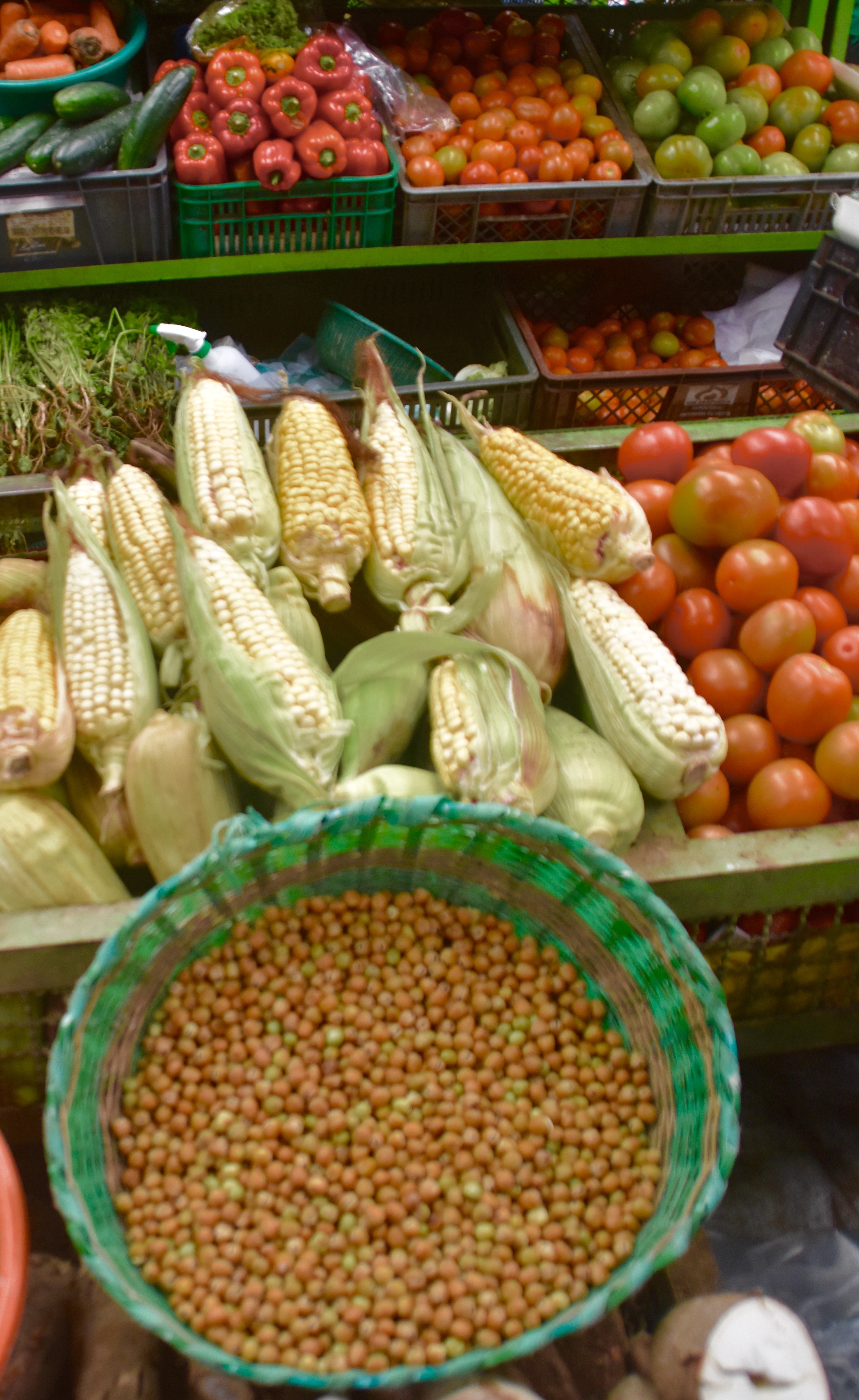
How’s this for, as Stompin’ Tom Connors would call it, another big load of potatoes?
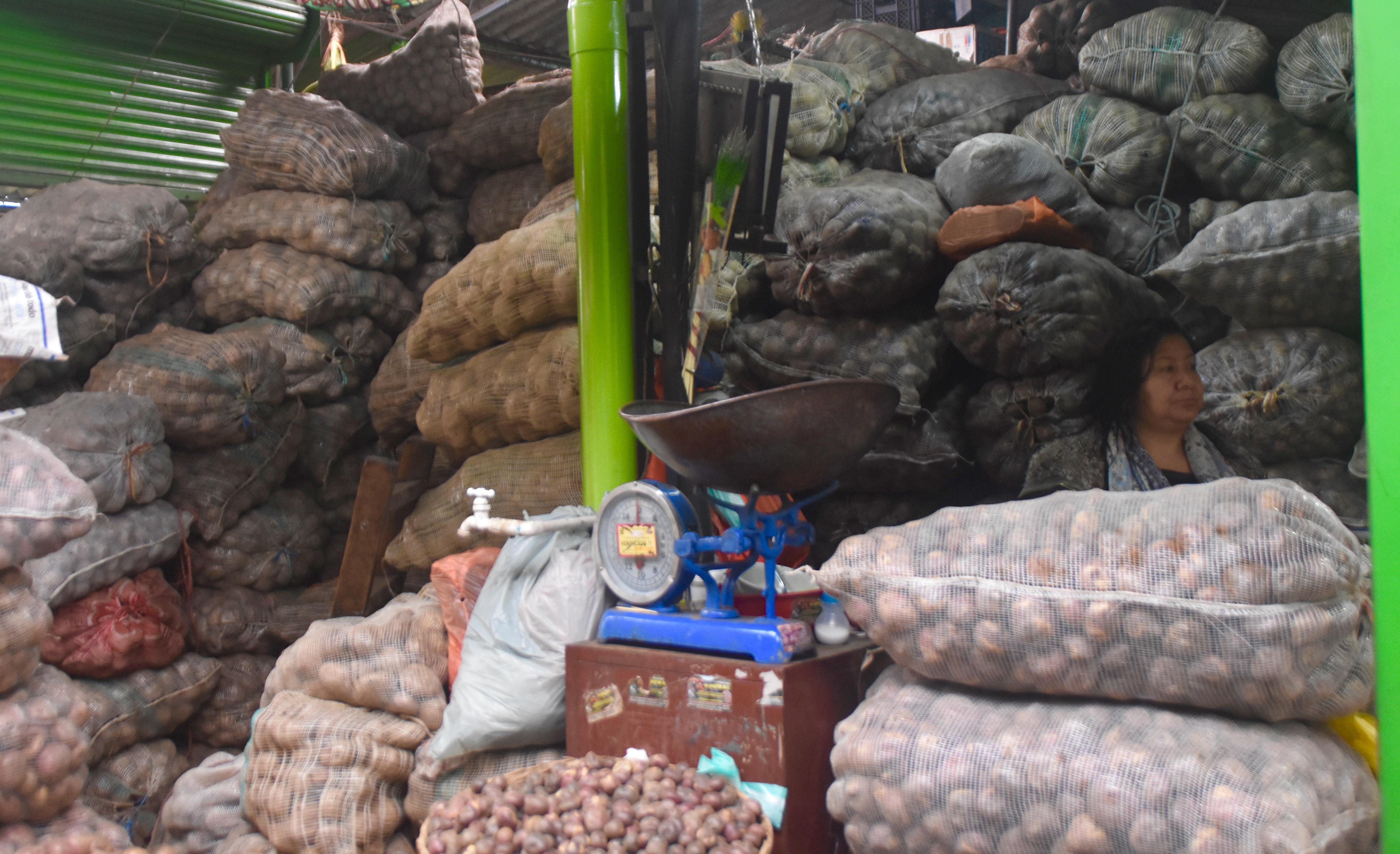
You can buy more varieties of potatoes in Bogota Market than probably anywhere in the world. Believe it or not these little white carrot shaped things are heirloom potatoes, much closer to the original plant than what we think of as a potato today.
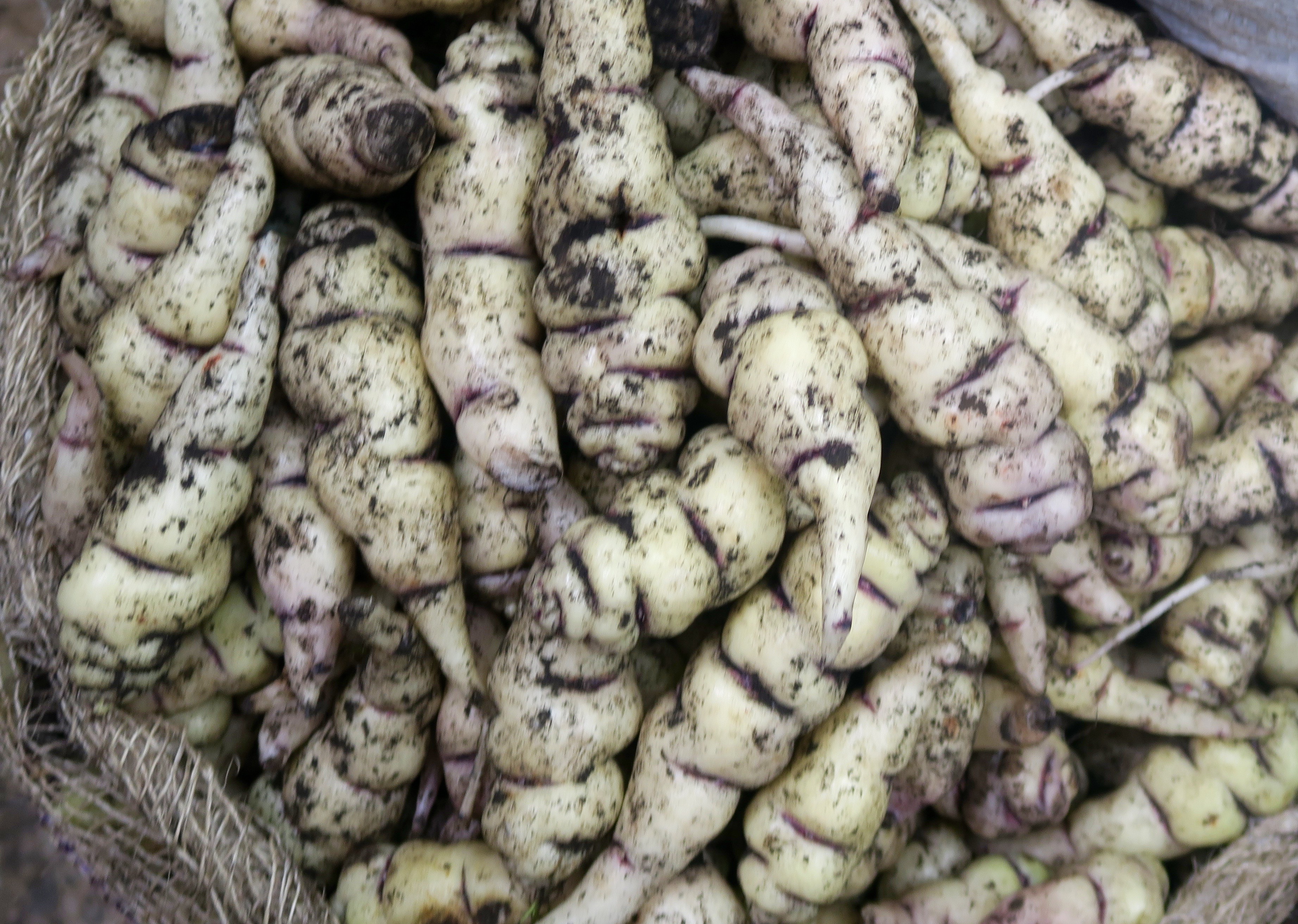
Catalina wasn’t finished with the food tasting at Bogota Market. Now was the time to sample some of the typical Colombian treats on offer from some of the dozens of food stalls. We had arepas, empanadas and Colombian tamales which are gigantic compared to what I’ve had in the U.S. These were washed down a variety of fresh juices made from some of the fruits we had tried previously. Any worries about the quality and freshness of Colombian cuisine were quickly dispelled by this visit to Bogota Market.
What we saw this morning was but a portion of this gigantic market place. If you stayed to check out the fish market, the poultry market, the meat market, the cheese market, the nut market etc. etc. etc. one could easily spend the better part of a whole day in this place.
Bogota Market is not a phoney display for tourists, but a real working market where everyday Colombians go about their business. I saw one other group of tourists there and a few English speaking couples, but on the whole this is an off the beaten track location. The people were uniformly friendly and the ‘Welcomes’ we first heard in the flower market were continued throughout our visit. What a great introduction to Colombia. Thank you, Catalina for taking us there.
Next it’s off to the salt mines. I hope you’ll come along.

